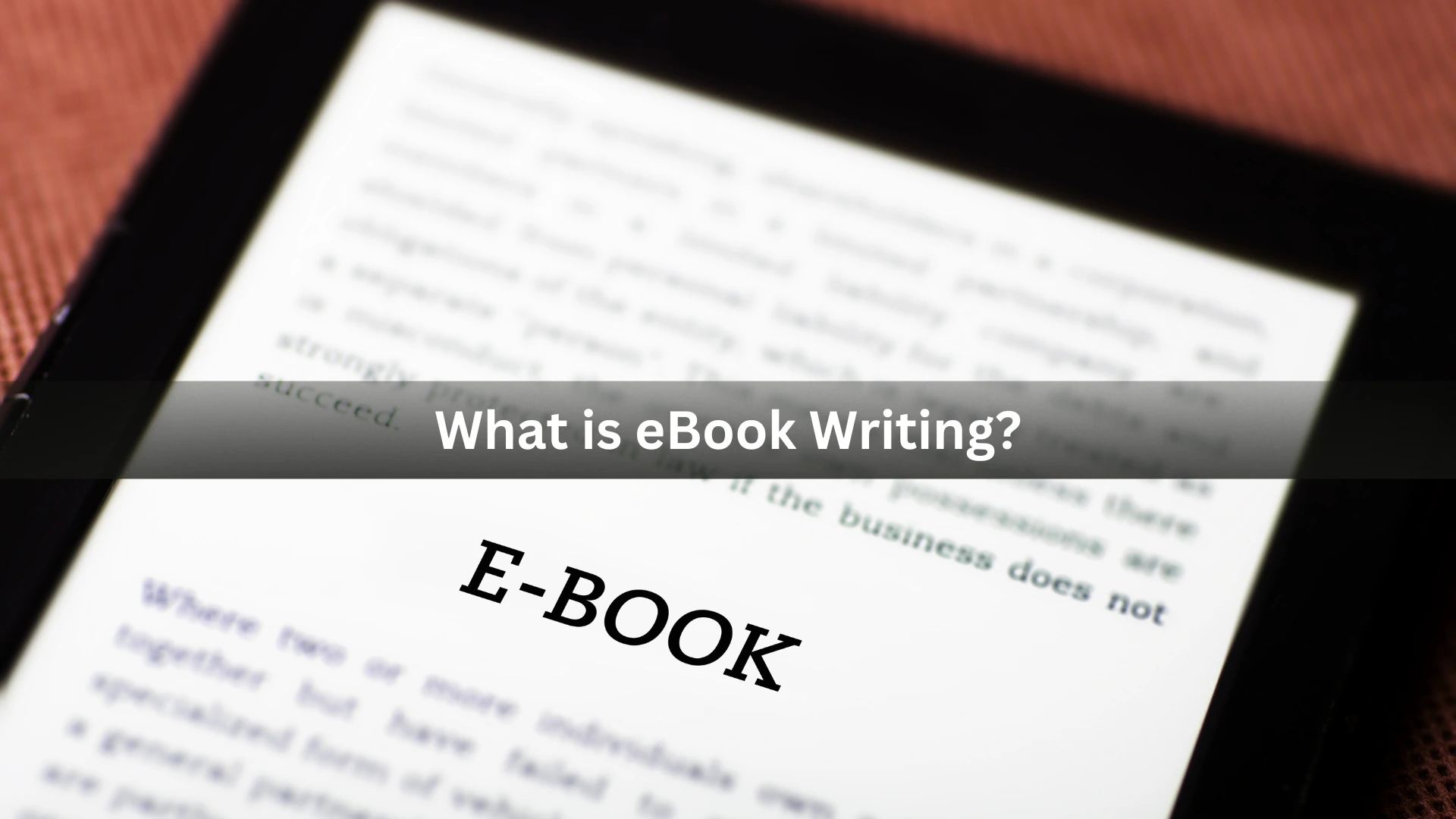Welcome to our definitive guide to understanding the fascinating world of eBook writing! In our digital age, eBook writing has gained substantial popularity, reinventing the way authors reach their readers and transforming the publishing industry.
Should a ghostwriter bill by the hour, the expense associated with producing an ebook can range widely from $30 to $200 per hour, contingent upon the intricacies of the project. The customary per-word charges for such tasks usually fall between $1 and $3. The market size of eBook was USD 17.01 billion which is expected to reach 20.93 billion in 2028.
As a seasoned ghostwriting agency, we’ve spent years perfecting the art of eBook writing and want to share our expertise with you.
Understanding eBooks
eBooks, short for electronic books, are book-length publications in a digital format. They can be read on various digital devices such as eReaders, tablets, smartphones, and computers. Unlike traditional print books, eBooks offer a level of convenience and accessibility unmatched by their paperback or hardcover counterparts. The first eBook was created way back in 1971, and since then, this format has flourished exponentially.
Benefits of eBooks are many. For readers, eBooks provide convenience (read anytime, anywhere), accessibility (download in seconds), and affordability (often cheaper than physical books). For authors, the perks are even more appealing. The advent of self-publishing has democratized the publishing process, allowing authors to bypass traditional gatekeepers, reach a global audience, and keep their books ‘in print’ indefinitely.
eBooks come in a variety of formats including PDF, EPUB, MOBI, and Amazon’s AZW, among others. Each format has its strengths and specific compatibility, which should be considered when publishing.
The Process of eBook Writing
The journey of eBook writing can be divided into three primary stages: pre-writing, writing, and post-writing.
Pre-writing involves identifying your target audience and choosing a relevant topic that would interest them. A well-researched and thought-out writing plan, akin to a roadmap, guides your writing process and keeps you focused.
During the writing stage, your eBook begins to take shape. A compelling introduction grabs your reader’s attention, whereas well-structured and informative main chapters keep them hooked. The conclusion should wrap up the topic effectively, leaving your readers with key takeaways and perhaps a call to action.
Post-writing involves proofreading and editing – critical steps we can’t emphasize enough. Even as professional writers, we always review our work meticulously or have a fresh pair of eyes review it. Alongside, an enticing cover design and appropriate eBook formatting are crucial to enhance reader experience and satisfaction.
Self-Publishing your eBook
Self-publishing has been a game-changer in the publishing industry especially for ebook writing. It gives authors control over their work, from writing to marketing. Major platforms include Amazon Kindle Direct Publishing, Smashwords, and Kobo Writing Life, each with its unique features and benefits. For instance, Kindle Direct Publishing has a vast customer base, and Smashwords excels in distribution across various retailers.
However, just publishing your eBook isn’t enough. Strategic marketing and promotion play a key role in your eBook’s success. Utilizing social media platforms, engaging with readers, and garnering positive reviews are all effective ways to boost your eBook’s visibility.
Tips and Best Practices for eBook Writing
Throughout our years of experience, we’ve gathered some invaluable tips for eBook writing. In the planning stage, a detailed outline can streamline your thoughts and guide your writing process. When writing, maintain a consistent tone and style that resonates with your audience. Authenticity is key; original and genuine content always stands out.
Don’t hesitate to seek professional help after writing. Investing in a professional editor or a graphic designer for the cover design can make a significant difference. Furthermore, feedback from beta readers or writing groups can provide useful insights for improvement.
Potential Challenges in eBook Writing and How to Overcome Them
Writing an eBook is a rewarding yet challenging process. Common obstacles include writer’s block, lack of motivation, and technical hurdles like formatting issues. Trust us, we’ve been there!
Strategies to overcome these vary. For writer’s block, taking a short break, or changing your writing environment can spark creativity. Setting clear, achievable goals can sustain motivation throughout the writing process. As for technical challenges, plenty of online resources and tools are available to assist you, or consider outsourcing certain tasks to professionals.
Conclusion
eBook writing, a journey filled with creativity and discovery, has revolutionized the world of publishing. By understanding its process, acknowledging the potential challenges, and utilizing best practices, you can create an eBook that resonates with readers and stands out in the ever-growing digital library.
Don’t hesitate to embark on this exciting journey. Remember, every successful eBook started with a single word. It’s your turn to start typing!
Feel free to share this guide with others who might find it beneficial. Subscribe to our blog for more insights and helpful tips about eBook writing and publishing. Happy writing!
Frequently Asked Questions

1. What is the best format for my eBook?
The best format for your eBook depends on where you intend to publish it. Amazon’s Kindle Direct Publishing prefers MOBI or AZW, whereas platforms like Apple Books and Google Play Books prefer EPUB. PDF is a universal format that works across most platforms, but it lacks some of the flexibility and features of the other formats, such as text reflow.
2. How can I overcome writer’s block during eBook writing?
Writer’s block can be overcome by various strategies, like taking short breaks, changing your writing environment, or indulging in a different creative activity. You could also try free-writing or brainstorming ideas without worrying about grammar or sentence structure to get your creative juices flowing.
3. How can I promote my self-published eBook?
Promoting a self-published eBook can be done in various ways. You can leverage social media platforms, create a website or a blog, send out newsletters, or offer promotional pricing. Garnering positive reviews on your eBook’s sales page can also significantly improve its visibility and appeal to potential readers.
4. How long should my eBook be?
The length of your eBook depends on the topic and your purpose. However, most eBooks range from 20,000 to 50,000 words. A shorter eBook (around 10,000 to 20,000 words) could work well for a simple guide or a concise introduction to a topic. On the other hand, more complex topics or narrative styles may require more extensive treatment. Remember, it’s essential to provide valuable, well-structured content, regardless of the length.

